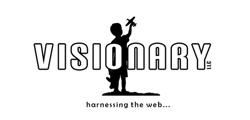Emotionally intelligent leaders that communicate clearly and adapt quickly will foster a productive work culture. Managers need to embrace creativity and resourcefulness to engage teams and drive innovation forward – essential leadership qualities which not only increase effectiveness as leaders but will propel organizations toward long-term goals.
Managers with strong leadership capabilities can motivate their teams and guide them through uncertainty. By developing critical skills necessary for future success, these managers and organizations position themselves for continued growth within an ever-evolving workplace environment.
Core Leadership Competencies of 2025
Effective leadership in 2025 calls for mastering key skills that foster engagement, innovation and decisiveness in decision making processes. Managers need to master certain competencies if they hope to thrive in today’s rapidly shifting business environments.
Building Emotional Intelligence
Emotional intelligence (EI) is key for effective leadership. EI involves understanding oneself as well as managing others’ emotions effectively; managers who demonstrate high EI can build stronger relationships within their teams.
Empathy is at the core of EI. When leaders demonstrate empathy towards their employees’ challenges and motivations, engagement and retention rates improve significantly.
Offering constructive feedback is another essential aspect of leadership; this allows team members to grow while feeling valued by leaders. Leaders should foster open communications by creating safe spaces for open discussion and active listening, encouraging honest dialogue with team members and welcoming honest discussion between teammates.
Enhance Decision-Making and Problem Solve
Decision-making in today’s fast-paced work environments requires effective managers who analyze numerous variables – data and diverse viewpoints alike – in order to make well-informed choices.
Natural problem-solving skills allow managers to spot potential issues before they worsen. Analytical and strategic thinking techniques should also be utilized swiftly when seeking solutions quickly.
Encourage team collaboration during decision-making processes to foster innovation. Doing so allows for diverse ideas and approaches, increasing creativity. Furthermore, continuous learning should also be maintained for managers so they can leverage fresh insights regularly into decision making processes.
Support Innovation and Creativity Now
Innovation drives success and helps organizations remain competitive, so leaders should foster an environment in which creativity can flourish – this includes giving employees freedom to explore their ideas without fear of failure.
Flexible management styles can foster innovative thought. Different team members may require various approaches in order to flourish; acknowledging individual talents and interests may lead to truly outstanding contributions from team members.
Innovation relies on creating environments that celebrate diverse perspectives, creating a sense of inclusion while encouraging fresh perspectives to emerge. Managers should encourage brainstorming sessions and collaborative projects as ways of unlocking teams’ creative energy and encouraging experimentation and innovation.
Effective Management and Communication in an Ever-Changing Workplace
Effective management and communication skills are indispensable in modern work environments. Leaders must adapt quickly to changes while keeping performance consistent across teams while remaining operationally efficient. This section emphasizes key aspects of effective communications, operational excellence and remote and hybrid work situations.
Acquiring Communication and Active Listening Skills
Managers rely on strong communication skills for success. They must convey ideas clearly and efficiently across to their teams using direct language as well as being aware of nonverbal cues.
Active listening can play an invaluable role in building trust within teams. Managers should pay full attention to team members by acknowledging any of their concerns – this promotes psychological safety while opening dialogue and increasing collaboration.
Effective communication can also quickly resolve conflicts quickly, with managers trained in conflict resolution techniques being able to address issues without delay or escalater, creating an ideal working environment and increasing overall productivity.
Reaching Operational Excellence
Operational excellence refers to reaching peak efficiency in processes. Managers should evaluate their team’s workflows regularly in order to identify any bottlenecks, and implement changes based on data for improved time management and resourcefulness.
Managers looking to enhance team performance should establish clear goals and expectations with team members so they can better comprehend their roles within the group. Offering timely feedback also keeps focus and motivation high.
Change management training provides leaders with the necessary skillsets for successfully leading their teams through transitions and ensures resilience even during uncertain times.
Navigating Remote and Hybrid Work Dynamics
As remote and hybrid work becomes more prevalent, managers face unique challenges in maintaining effective communications for teams working remotely or hybrid. Checking-in regularly via video calls or messaging platforms is essential to keeping teams together and can keep communication lines open.
Building strong networks is crucial for managers in hybrid environments. Encouraging informal interactions helps foster collaboration and strengthen relationships, leading to more effective problem-solving and innovation.
Managers need to foster an inclusive atmosphere within their teams in order to foster psychological safety and increase employee engagement, ultimately leading to higher productivity levels. This ensures psychological safety as well as employee engagement that ultimately contributes to increased productivity levels.





















